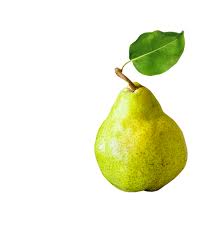 The pear is a storied fruit. Native to China, the pear has been cultivated for over 7,000 years. The most famous cultivator is by far Feng Li, who retired from his role of Chinese diplomat to focus on grafting and growing this delicious fruit. In The Odyssey, Homer described the pear as a “gift of the Gods” for its taste and unique texture. Because of the pears cooking versatility and long storage life, the pear was quickly traded along the Spice Route from China to ancient Greece. Moving through Europe, the pear was used as a delicious food but also as the base ingredient for liquor and cider. The pear was brought to the New World, although the tree was plagues by viral infections. In time, the pear was brought to the Pacific Northwest, where it found a comfortable home and continues to be a major agricultural crop to this day.
The pear is a storied fruit. Native to China, the pear has been cultivated for over 7,000 years. The most famous cultivator is by far Feng Li, who retired from his role of Chinese diplomat to focus on grafting and growing this delicious fruit. In The Odyssey, Homer described the pear as a “gift of the Gods” for its taste and unique texture. Because of the pears cooking versatility and long storage life, the pear was quickly traded along the Spice Route from China to ancient Greece. Moving through Europe, the pear was used as a delicious food but also as the base ingredient for liquor and cider. The pear was brought to the New World, although the tree was plagues by viral infections. In time, the pear was brought to the Pacific Northwest, where it found a comfortable home and continues to be a major agricultural crop to this day.
Key Nutrients
Pears are a great source of vitamin B, vitamin C, vitamin E, copper and potassium. Pears are also a great source of dietary fiber and are low in both saturated and unsaturated fat.
Health Benefits
Potassium – Potassium is an essential mineral which aids in fluid regulation, protein synthesis and cardiovascular health. High levels of potassium are associated with reduced risk for stroke, improved blood pressure control as well as bone health.
Vitamin C – Regular consumption of foods rich in vitamin C helps the body develop resistance against infections and scavenges harmful, pro-inflammatory free radicals. Vitamin C also helps to prevent respiratory problems such as asthma and lung cancer. Vitamin C has been shown to lower blood pressure, and therefore lessen the probability of hypertension.
Vitamin E – Research has shown that vitamin E possesses anti-inflammatory effects that can combat arthritis, rheumatism, asthma, and other inflammatory disorders linked to chronic inflammation. Vitamin E also improves the body’s metabolic function.
Vitamin B1 – Thiamine is an important vitamin since it breaks down sugars in the body. Thiamine also helps to support nerve and heart health.
Vitamin B6 – Vitamin B6 helps to keep your immune system in good working order. It aids in the breakdown of fats, carbohydrates and amino acids while helping to maintain the health of lymph nodes. Additionally, vitamin B6 helps to regulate blood glucose levels.
Vitamin B9 – Folate is an important vitamin for liver function.
Vitamin B12 – Vitamin B12, or folic acid, helps to preserve neurological function and DNA synthesis. It also plays a key role in the health of red blood cells. The nervous system relies on vitamin B12 for proper function as well.
Dietary Fiber – Dietary Fiber stimulates digestion and peristalsis, helping to relieve indigestion and constipation problems.
Copper – Copper is an essential mineral which helps to promote proper growth, enzymatic reactions, healthy connective tissues and proper heart rhythm.
Season
The season for pear trees varies from variety to variety, making this fruit available year round.
Nutrition Information
Per 1 cup (178 grams):
Calories (cKal): 103
Protein (grams): .68
Total Fat (grams): .21
Carbohydrates (grams): 27.52
Fiber (grams): 5.5
Buying and Storing
When buying pear, make sure the fruit is firm to the touch and free of blemishes. When storing at home, pears can last on your countertop for up to ten days, on in your refrigerator for up to two weeks.
Best Way to Add to Diet
Pears are a great afternoon snack served raw. They also make a great addition to any fruit salad. Try grilling a pear and serving with your favorite fish, duck or lamb dish. Finally, poached pears make a great dessert, spiced with vanilla, cinnamon and lemon zest.
Pear Recipe

 Not Sure What Healthy Foods To Eat?
Not Sure What Healthy Foods To Eat? This week we take a look at one of my favorite healthy foods...the mighty Avocado.
This week we take a look at one of my favorite healthy foods...the mighty Avocado.
No comments yet.